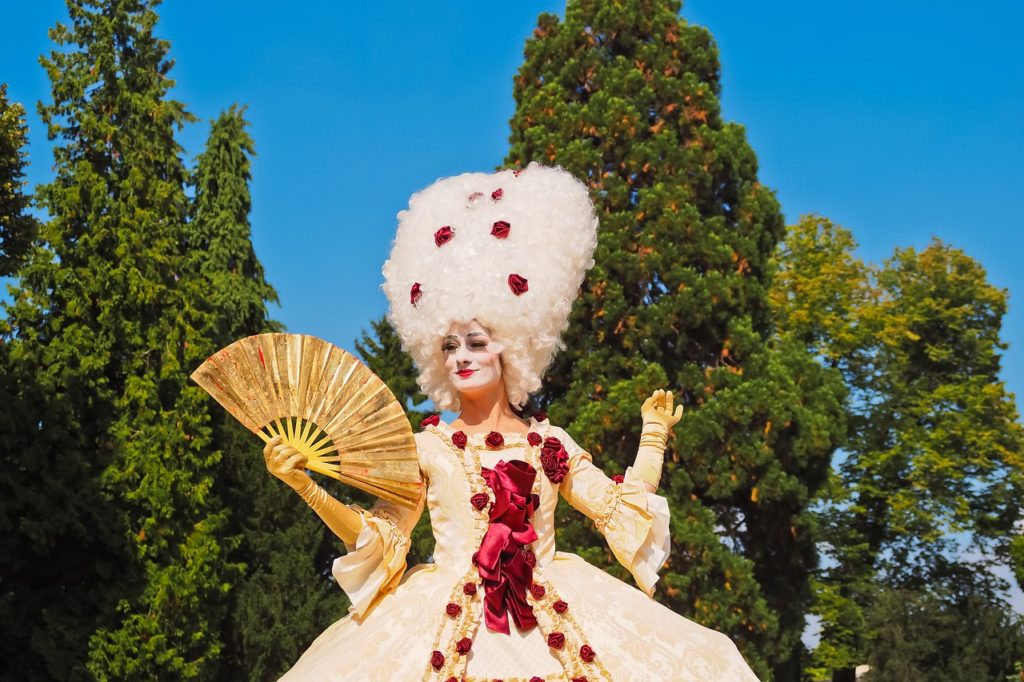Bigwig
 Few of us are bigwigs. However, we probably know people who are.
Few of us are bigwigs. However, we probably know people who are.
A bigwig is an important person.
The person may be a:
- King, queen, or other government official
- President of a company
- Famous actor or athlete
A bigwig usually has a high position, power, and money.
According to The Phrase Finder, “The fashion for wigs began with the Bourbon kings of France. Louis XIII (1601 – 1643) went prematurely bald and took to wearing a wig. By the middle of the century … wigs were virtually obligatory for all European nobility.” Their wigs became so large, this phrase grew in popularity.
Bigwig also means a person who pretends to be important.
If we try to be a bigwig, we act highfalutin. Our pride gives us a big head. Other people usually recognize the behavior as only an act.
Everyone is important to God.
We may not have a high position, money, or power, but God gives us purpose. May each of us find our purpose and do it to the best of our ability.
“Do not think of yourself more highly than you ought, but rather think of yourself with sober judgment, in accordance with the faith God has distributed to each of you” (Romans 12:3 NIV).
Thanks to Regina Graham for the suggestion. Image by Michael Gaida from Pixabay.
Do you have an expression you want explained or a thought about this one? If so, please comment below.
Subscribe to receive my weekly posts by email and receive a free copy of “Words of Hope for Days that Hurt.”
If you enjoyed this post, please share it with your friends.
6 thoughts on “Bigwig”
That was the verse I was thinking of when I saw your title! I don’t know too many bigwigs, but we can all get a big head now and then.
Tracy, I started to say, “Great minds work together,” but I don’t want either of us to get a big head.
I guess we all know “bigwigs” from each category. Aren’t we blessed that we’re all important to God? Such an interesting post. I look forward to more expressions explained.
Thank you, Katherine. We are definitely blessed that we’re all important to God.
I’m so glad I found you here. I love idioms. While living in Haiti our Haitian friend, Leon, would come over each evening and sit with us outside as we played, or watched others play, domino’s.
We spent one whole evening talking about all the ways to say someone has died in English. “He bought the farm”, “he’s pushing up daisies”, he’s no longer with us, he’s passed on, etc. It reminded me how colorful English is.
Diana, you and Leon might enjoy my post, “Kick the Bucket.” https://dianaderringer.com/kick-the-bucket/
It does not include “He bought the farm.” Thank you for that addition. I never dreamed how many idioms and other expressions we use until I began this blog.